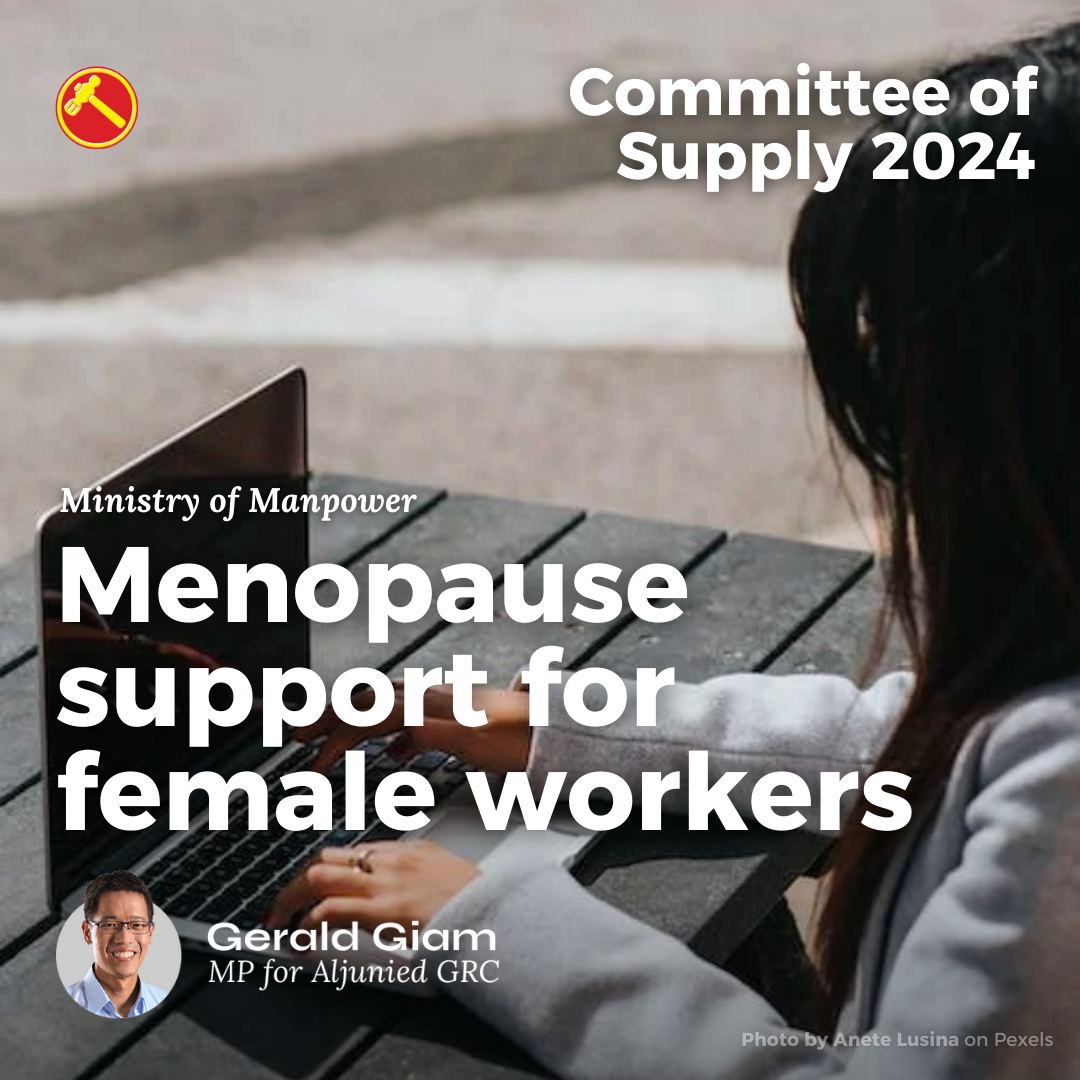Committee of Supply debate, Ministry of Manpower, 4 Mar 2024
The number of women aged 40 to 59 in the labour force has risen by 97,000 from 2012 to 2022. Many in this group of workers would be undergoing perimenopause, which can present various physical and emotional challenges that may impact their well-being and work performance.
Awareness of the health-related impact of perimenopause on women’s well-being does not seem to be widespread in Singapore. The Straits Times, in a piece titled “Is Singapore ready for the menopause wave from a super ageing society?” interviewed women who quit their jobs or suffered through the pain at work.
This loss in productivity may ultimately be costly to businesses and the economy, not to mention the human toll it takes on female workers. Based on an NUH study, and extrapolating for the current midlife working population, as many as 388,800 women may be bearing the ill effects of perimenopause at work.
It is important for employers to recognise and accommodate these changes, and foster a supportive work environment that addresses the unique needs of these women. It is notable that the UK and Australian parliaments have convened MP-led consultations to raise awareness nationally.
In Singapore, we can start with incentives for women who turn 45 to seek pre-emptive check ups and for those we need physiotherapy for their joint and muscle pain to either subsidise the treatment or give them time off for it.
If women are forced to cut short their working life during their menopause transition, their health and finances may worsen, and our economy will lose out on their valuable contributions. This scenario is entirely preventable.
